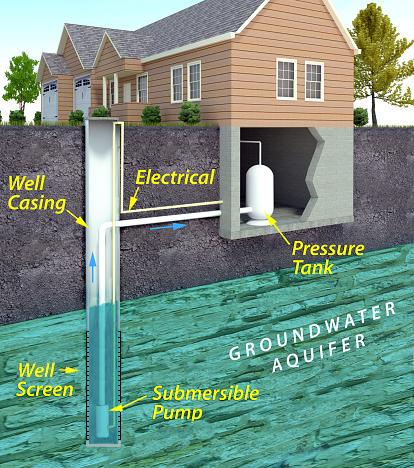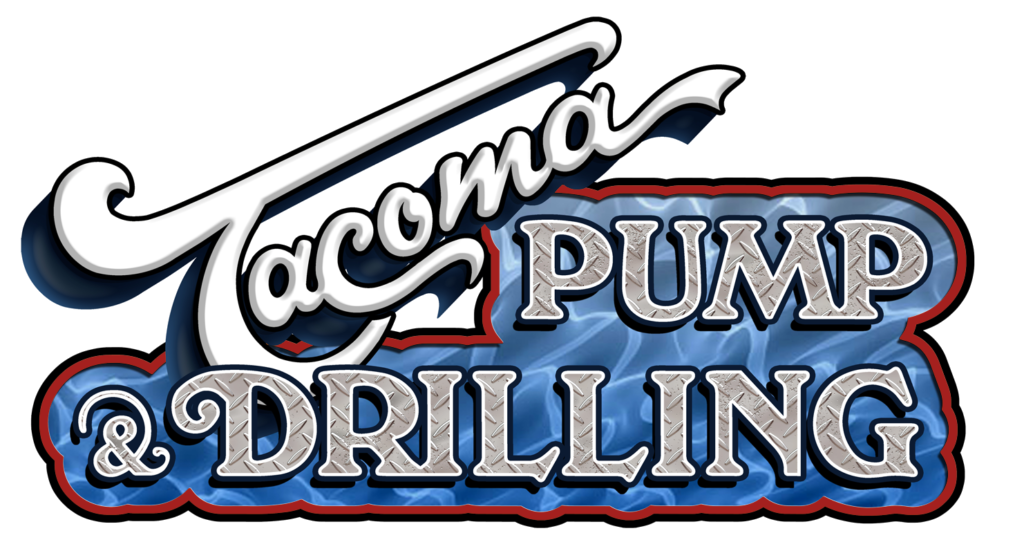Over the years we’ve shared a lot about how to prep your property for a new well, the permitting and licensing requirements, and what to expect when a driller comes to drill your well. One thing we haven’t discussed very much is what to know when purchasing a property that already has a well. Well ownership comes with a variety of responsibilities. It is important to know what questions to ask, what to look for, and what to expect when buying a home or land with an existing well. Before you start signing contracts, make sure to ask your realtor and the homeowner these key questions.

The Condition of the Well
One of the first things you’ll want to ask your real estate agent and the homeowner is for details about the current state of the well. We’ve included some questions here and why they matter:
- When and how was it installed? If the well wasn’t drilled, you will want to consider your options for either connecting to municipality water or having a new well drilled. Drilled wells can last between 30 to 50 years, so it is also important to note the age of the well.
- What is the depth and flow rate? Most drilled wells should be approximately 100 ft deep, or more. And water should flow at a rate of 3-5 gallons per minute.
- What is the well’s capacity? The average household uses about 138 gallons of water per day or 60 gallons per person. Make sure your potential new property has the capacity for the number of people in your household.
- How old is the pump and when was it last checked? Look for things like corrosion on the pump fittings and be sure to get detailed information about when the pump was installed. The average pump lasts approximately 10 years.

The Location of the Well
The saying goes that the three most important things in real estate are location, location, location. The same can be said for your water well! Where it is located, not just on the property itself but also in relation to other buildings and utilities, can have an impact on the quality and longevity of your property’s clean water.
Does it have the appropriate setbacks from other items on the property? If a well is too near a septic tank or drain field, that could lead to major contamination of your drinking water. Check that these setbacks are in place:
- Building or Structure Dripline: 5 ft
- Septic Tank: 50 ft
- Building Sewer: 50 ft
- Septic Drain Field: 100 ft
- Permitted Landfill Boundary: 1000 ft
- Building structure or building projection: 5ft
Is the well uphill or on level ground? Make sure the well isn’t downhill or in an area where water is likely to pool, as this can also lead to contamination.
Do the location and structure meet local codes and regulations? Be sure to check with your realtor as well as the local department of ecology before agreeing to the purchase. Make sure every part of the well meets the requirements of your county. This will ensure that you have a solid, healthy well servicing your new home.

Water Quality and Testing
Now that you have the condition and location of the well in hand, the final step is to make sure the water is safe to consume and use in your home.
- When was the water last tested? Ask for logs and data confirming the water test results and timeline. For best results, consider hiring a certified lab technician to test the water. You can get certified lab details from the Washington State Department of Ecology.
- Are there any issues with the groundwater in the area? While the homeowner or your realtor may not have the most thorough information, the department of ecology will. Check for groundwater assessment data before signing the contract.

Adding a New Well to the Property
If the well is old or damaged, and you want or need to keep the property on well water, the final step is to determine if you can add a new well to the property. You will also need to have the current well professionally decommissioned. That’s where your local drilling team comes in.
We help homeowners through the process of receiving the proper certification to install new wells on their property. From permitting to checking the property for proper setback distances from possible contaminants, we walk you through every step of the process. We even decommission old or abandoned wells so that you can move forward with your new well knowing your property is safe, up-to-date, and up to code. Contact us today if you need more information about closing an old well or installing a new one on your newly purchased property.

